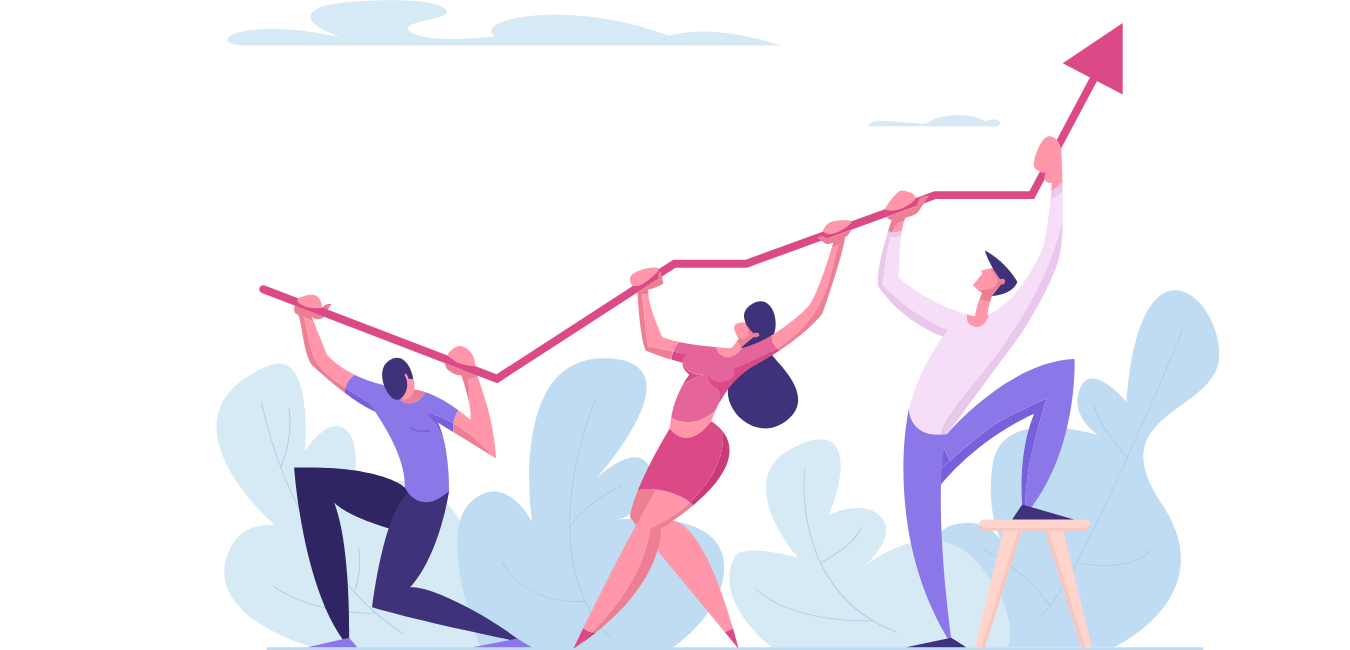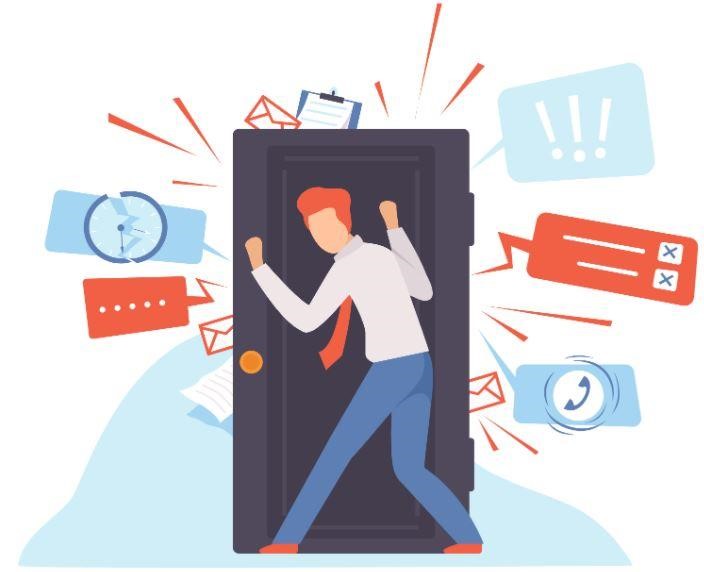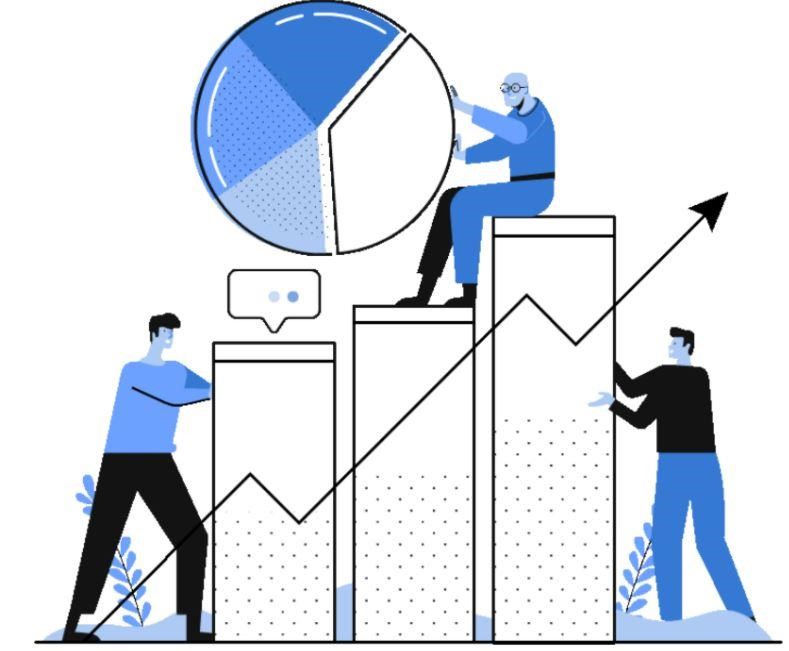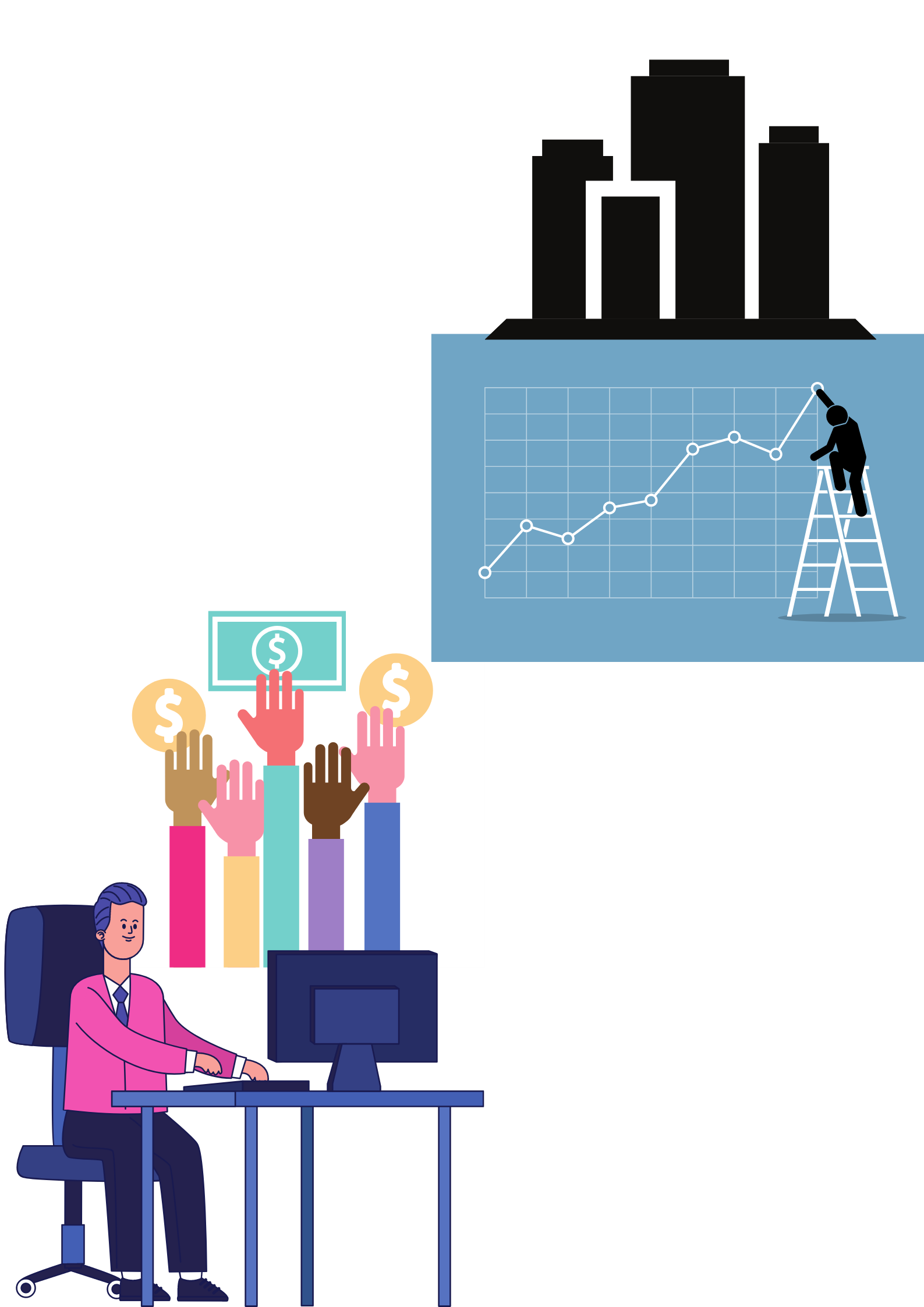
Today, because of the competitive world that we live in, companies that provide opportunities and job satisfaction to their employees are the ones that stay ahead of the corporate success curve.
Employees want to be heard, seen, and valued for the skills they bring into the work environment for the organization’s success. Able employees who feel underutilized often seem frustrated, unmotivated, less loyal, and even prone to making more mistakes at their jobs.
A company is only as good as its employees.
Organizational success is largely dependent on employee performance and their mental wellbeing. The always-on culture and increasing use of technology have affected our lifestyle and our brains significantly.
A high percentage of employees at any given time experience copious amounts of stress and are either not engaged or actively disengaged from work. These are usually the consequences of overworking which then result in decreased performance and efficiency.

Here, we’ll take a closer look at why organizations should focus on employee mental health wellness and how brain training can benefit everyone — including organizational performance.
Happy Employees = Business Success
There may have been times when you encountered the concept of happy employees being crucial to business success — something that is actually true but not always given the attention it deserves.
Statistically speaking, wellness programs are more likely to achieve positive ROI when they support employees along the entire spectrum of mental health—from the promotion of well-being to intervention and care.
Employers can achieve greater program ROI by prioritizing investments in higher-impact areas, such as leadership training and preventive interventions, including psychological care benefits.
Let us take a look at data that suggest a correlational success story between healthy, happy employees and successful companies.
- A study by Deloitte revealed that companies with mental health programs for a year had an annual return on investment of $1.62 for every dollar invested. The returns doubled to about $2.16 for companies with two or three years of mental health programs. This growth in the company has led to better company culture brought about by higher employee job satisfaction and lower employee absenteeism.
- Moreover, according to an article published by the World Health Organization (WHO), for every $1 put into mental wellness, there is an ROI of $4 in improved health and productivity.
- In the article “The Happiness Dividend” published in the Harvard Business Review, accuracy in tasks increased by 19% and sales increased by 37% when the employees are happy and engaged.
The findings above imply that an understanding of the brain has huge implications for managers and organizations. With brain imaging studies allowing us to see how the brain functions, we have been able to see that the brain is like any other organ in the human body. It has the capacity to repair itself, regrow and regenerate.
Using the concept of neuroplasticity to understand how the brain remodels behaviors and adapts to workplace conditions has been key to staying ahead of changes, uncertainties and maintaining the productivity of the workings of an organization. Thus, organizations are now recognizing that mental fitness is equally as important as physical fitness.
If employers measure their baseline data and take stock of existing initiatives, many organizations will realize that they have already started to use the right tools to strengthen workplace mental health. Putting in place mechanisms to measure performance can enable organizations to achieve desired program impact, improve adoption rates, and enhance decision-making.
Neurofeedback Therapy: An Innovative Approach To Brain Training
Neurofeedback brain training therapy involves the use of a revolutionary set of techniques to identify and treat a range of mental health conditions. It helps to promote peak physical, emotional, and mental wellness using non-invasive methods. It is an effective tool for enhancing performance as well as managing emotional distress.
Neurofeedback brain training uses EEG technology to measure brain wave activity and relay that information back to the brain in real-time via audio-visual cues and software. This feedback of its own activity, over time, helps the brain learn, adjust, and adapt itself to form healthy behaviors. These tools and techniques aid the brain in performing better and implementing these improvements in daily life.
Neurofeedback training has been used by the U.S. National Aeronautics and Space Administration (NASA) for astronaut training as a way to improve astronauts’ focus and mental acuity.
It is also being used by professional athletes to increase their mental agility, emotional control, sleep and reduce cognitive decline. Musicians, dancers, and actors have also used it to enhance creativity and manage performance anxiety.
Why Employers Should Invest in Brain Training
In recent years, brain training has been proven to have a significant impact on employees.

Brain Training Diminishes Workplace Burnout and Disengagement
Employees often face feelings of stress, burnout, and disengagement.
A workplace is a complex and demanding ecosystem, and staying productive or engaged in such an environment may be challenging. Being resilient in high-pressure situations can help employees tackle obstacles more effectively without being distressed.
Developmental activities such as brain training can help optimize brain health, reduce stress and increase productivity. More importantly, it can help with stress management, so one becomes calmer, relaxed and focused even when dealing with stressful situations.

Brain Training Enhances Motivation and Focus
One of the more common complaints in today’s workplace is the need to constantly multitask. Given the complexity of tasks and spaces, it is no wonder that workers have trouble managing their office duties effectively and coping with constant information overload.
Email, telephone calls, electronic discussion groups, websites, pushed intranet news, letters and memos, faxes, sticky notes, calendars, pagers and, of course, physical conversations and meetings, are just a few of the communication events that bombard today’s knowledge worker.
This workspace of increased complexity, saturated with multi-tasking, interruption, and too much information can lead to cognitive overload. The effects of which reflect on the individual in the form of pressure, tension with colleagues, loss of job satisfaction, and strained personal relationships.
On the other hand, while certain employees may feel they’re great multitaskers, studies have shown that heavy multitaskers are actually worse at it than employees who like to focus on one thing at a time. That is, dividing your attention across activities and multiple devices means your brain cannot give any of the tasks the complete attention required. Multitasking may even have negative long-term effects on brain health.
It is worth noting that our ability to effectively react and recall events is largely determined by how engaged we are and how quickly our brain can process information.
The brain’s ability to rewire itself is the best tool for fighting off cognitive disengagement. It is possible for an employee to keep those billions of neurons in shape, but it requires both the employees and executives to understand how the human brain functions. This way, they can develop a cognitive fitness program that will increase the success of employees and, in turn, the resiliency of the organization.

Brain Training Improves Cognitive Abilities, Accuracy and Speed
The challenge of cognitive aging compelled brain scientists to develop brain exercises that can improve many abilities, including memory, attention, and time management. In fact, scientists claim that adhering to a standard brain exercise pattern can help in maintaining a good and positive mood.
Studies have also revealed that certain brain chemicals associated with attention and mood can be significantly elevated through guided brain training. Doctors indicate that small amounts of brain training can have a huge impact on an employee’s workplace performance, both individually as well as within a team.
In a research conducted for the law enforcement officers responsible for making split-second decisions, officers were asked to undergo 30 minutes of brain training per day over a course of four weeks.
Upon evaluation of their performance, it was found that their cognitive progress was reflected in their attention to detail, visual speed and inhibitory control and motor fitness which had improved to a great level.

Brain Training Augments Your Ability to Adapt to Changes
Over the years, with the help of technology, companies have welcomed innovative technologies that help to reinforce a more approachable and efficient way of completing tasks.
For instance, maybe your employer has added a new email system. The new system is essential to helping you work more efficiently by reducing the amount of time it usually takes for you to complete a task.
Even though you may be bound to make mistakes in the process of adapting to the new system, brain training in such instances will help you become more alert, motivated, and adaptable. Subsequently, the time taken to perform certain tasks is reduced, adding to your efficiency and productivity.

Time to Invest in Brain Training
Improving cognitive fitness in both employers and employees results in better work performance and organizational success. This is why CEOs of fast-growing startups and large corporations today are constantly looking to create corporate strategies that can help manage cognitive overload and work-stress.
Gone are the days when corporations were only focused on enhancing business gains. Today, we see companies giving equal importance to the engagement and happiness quotient of their employees as well.
All this, of course, is rooted in the understanding that employee happiness has a strong positive correlation to business success.
So, if you’re ready to harness the benefits of brain training for your employees and your business, please get in touch with Evolve Brain Training.

